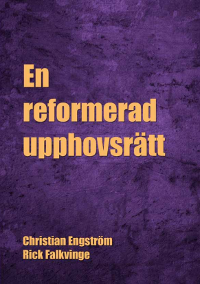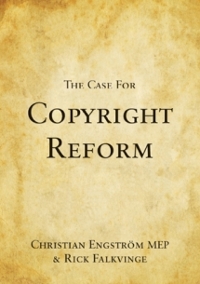The European parliament’s vote earlier this week on a resolution that asked for a ban on all forms of pornography in the media was not entirely easy to interpret, but the most reasonable political interpretation is to say that the parliament said No to a ban on porn.
But let’s take a closer look at the different articles that the parliament voted on.
First, Article 14:
14. Points out that a policy to eliminate stereotypes in the media will of necessity involve action in the digital field; considers that this requires the launching of initiatives coordinated at EU level with a view to developing a genuine culture of equality on the internet; calls on the Commission to draw up in partnership with the parties concerned a charter to which all internet operators will be invited to adhere;
The parliament rejected this article completely, which is very good. If it had not, it would have called for turning the internet service providers into some kind of private ”porn police”, very much along the same lines as the ACTA treaty that wanted to turn them into a private file sharing police.
The rejection of this article was a clear and very important victory for free speech and information freedom.
Then, Article 19:
19. Calls on the Member States to establish independent regulation bodies with the aim of controlling the media and advertising industry and a mandate to impose effective sanctions on companies and individuals promoting the sexualisation of girls;
This article asked member states to establish regulation bodies with the aim of controlling the media and a mandate to impose sanctions on companies and individuals. That kind of mechanism has no place in a democratic society.
The rejection of this article as well was another clear victory for freedom of speech.
Finally, Article 17:
17. Calls on the EU and its Member States to take concrete action on its resolution of 16 September 1997 on discrimination against women in advertising, which called for a ban on all forms of pornography in the media and on the advertising of sex tourism
Here, the parliament rejected the second half of the article with the explicit call for a ban on all forms of pornography in the media, but kept the first part with the indirect reference to the resolution from 1997.
This is where it gets tricky and a bit ambiguous.
On the one hand, the parliament rejected the direct call for a ban. So far, so good. The parliament no longer highlights that particular article in the old resolution. If the highlighting had remained, it would have been clear that the parliament did in fact want a ban on porn in media, but it was taken away.
But on the other hand, Article 5 of the 1997 resolution still contains a call for ”statutory measures to prevent any form of pornography in the media”, and the parliament expressed that it wanted that resolution implemented, without mentioning any exceptions.
So how should we interpret this?
The reasonable political interpretation is that the parliament does not want to ban pornography on the internet or in the media.
If this had been a legislative report, it would have been correct to say that the parliament wanted to ban porn in magazines, TV and DVDs. Legal texts are quite similar to computer code (although courts are quite different from computers), so in that case an indirect reference would be just as strong as a direct mention of the porn ban.
But this is a political resolution where the parliament just expresses an opinion, and then it has to be read in a different way. From a political perspective, the important thing is that the parliament actively removed the wording ”a ban on all forms of pornography in the media” (and remove all the sharp proposals on how to enforce it). If the majority had in fact been in favour of a ban, it would have had no reason to do this. Since it did, the only reasonable conclusion is that the majority of members didn’t want a ban.
This is a victory, and that’s what counts in the political landscape in Brussels.
Thank you, all activists who contributed by sending emails to MEPs or in other ways!
…………
Republished at Falkvinge on Infopolicy
Others on the topic: TechEye
 Christian Engström, former Member of the European Parliament 2009-2014 for Piratpartiet, Sweden
Christian Engström, former Member of the European Parliament 2009-2014 for Piratpartiet, Sweden




Great work Christian, I have never been so proud and satisfied of voting pirate as of now! Well maybe when you and Amelia helped stop ACTA of course. Anyway have a great weekend and best of health!
Kommentar av gurra — 15 mars 2013 @ 20:55
Reblogged this on Urbansundstrom’s Weblog.
Kommentar av urbansundstrom — 16 mars 2013 @ 16:56
Thanks
Good explaination, I was convinced the results meant that they wanted to ban porn in all media except internet. Kinda says more about me than about the result, i guess:-)
Kommentar av Ano Nymous — 16 mars 2013 @ 19:39
[…] March The EU Parliament voted against a blanket ban on pornography on the […]
Pingback av P-review 18 March 2013 — 18 mars 2013 @ 10:01